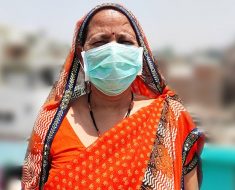
The importance of addressing depression among low-income women in multiple contexts is a theme of recent research by April Ivey, GRS’22, Professor Jacqueline Corcoran, and others at Penn’s School of Social Policy & Practice (SP2).
Dr. Ivey, a recent graduate of SP2’s Doctorate in Clinical Social Work (DSW) program, gathered 59 previous studies encompassing over 57 thousand participants for her dissertation and discerned through data analysis that over one third of low-income Black women self-reported symptoms of depression.
Ivey hopes that her dissertation, “The Prevalence of Depression in Low-Income Black Women: A Systematic Review and Meta-Analysis,” paves the way for future research that focuses on culturally adapted screening and interventions that best support positive outcomes for low-income Black women with depression, as well as treatment protocols that include sensitivity and understanding of the social factors that this group may face, including systemic barriers.
“I am passionately committed to advocating for social justice and equality for marginalized communities through education and leadership,” says Ivey, who is currently care team lead at Cityblock Health. “Throughout my career, I have worked with diverse populations performing individual, group and family therapy and have trained agency staff in the use of evidence-based interventions.” A licensed clinical social worker with ten years of post-graduate experience in mental health social work, Ivey undertook the DSW program to prepare for advanced practice.
Dr. Corcoran, who served as first advisor for Ivey’s dissertation, coauthored a study earlier this year that documented high rates of depression during the pregnancy and postpartum periods of low-income women living in developed countries. Corcoran, along with Ivey’s second advisor, SP2 Associate Professor Ioana Marinescu, and Ph.D. in Social Welfare program students Claudia Vogelsang and Jessica Cho Kim, published “Prevalence of depression during pregnancy and postpartum periods in low-income women in developed countries” in the Journal of Public Health in January 2022.
Their work comprised 157,151 participants in 64 studies, mostly from refereed journals and spanning the period from 1985 to 2018. Among low-income women who were pregnant or postpartum, the prevalence of depression was 33.82%. Higher-income women had a depression prevalence of 15.64%, which was less than half the prevalence among low-income women in all studies.
Like Ivey, Corcoran and coauthors hope to bring further attention to the prevalence and treatment of depression among the populations studied. “High rates of depression among women living in low-income conditions is of serious public health concern due to generational effects, with several possible adverse biological, psychological, and social effects on children. Women’s social determinants of health need to be addressed, as these contribute to both depression and recovery,” Corcoran and the study’s coauthors write.
Source: Read Full Article





